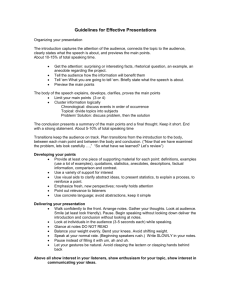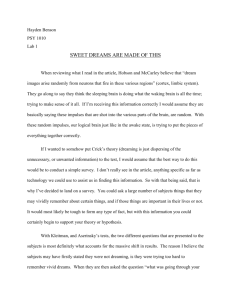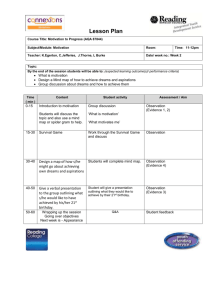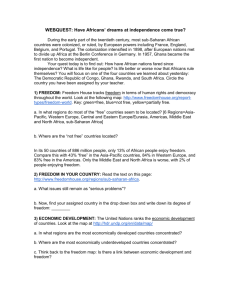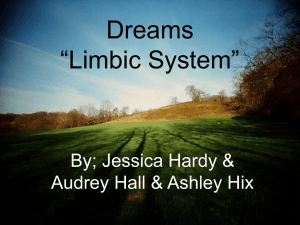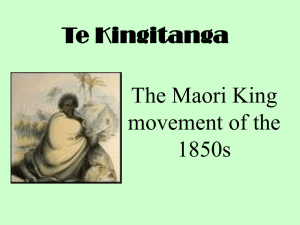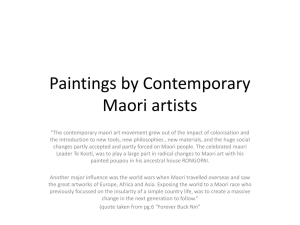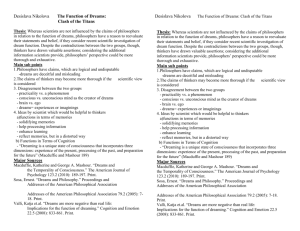Friend Hone Tuwhare
advertisement
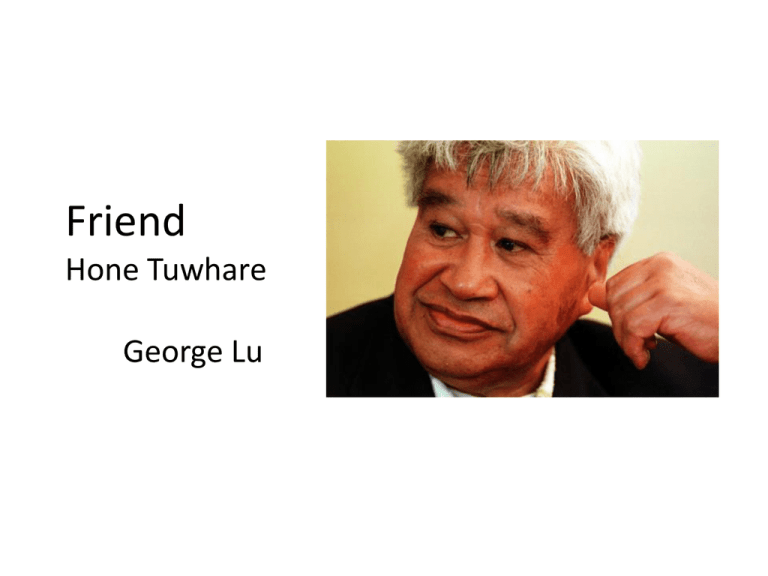
Friend Hone Tuwhare George Lu Hone Tuwhare • Born in Northland, but eventually moved to Auckland, after his mothers death at a young age. • Maori, but wrote in English. • Trades union activist and a advocate of the working class and Maori. Summary • Tuwhare reminisces of a tree and the ‘dreams’ he and his addressed friend – the readerlived, which is now gone. • This contrast is evident with the comparison of dream and ‘dreamless’. • As a result, the tree seems to embody a special meaning for Tuwhare. Setting • A ‘wild stretch of land with the lone tree guarding the point the point from the sharptongued sea’. • This suggests a private place of Tuwhare’s, and his ‘Friend’ but also since it was a long time ago but is still remembered vividly means that it is still great personal important. Mood • Tuwhare describes the land in which he walked as a ‘cracked clay floor’ – which he knows can not be restored to its previous state. • Despite this, he is still desperately trying to reassure himself that it ‘were real’, desperately clasping the readers hand for reassurance, as if he could still grip it once more. This effect is further enhanced by the enjambment- a literal ‘clasping of words’. • This creates a feeling of sorrow and shared pain-which is easily conveyed when the reader is addressed, as if they were his friend. Themes -Youth • The tree metaphorically represents the ‘shade’ of which guards Tuwhare from the ‘hurt and troubled world’ – as he describes as a ‘fort’. The protection is soothing, evidenced in the imagery‘lips’ and ‘whistle’ to a ‘sharp-tongued sea’. • In this protected state, Tuwhare only has ‘youthful dreams’ and ‘jewelled fantasies’-this will contrast deeply with the adult Tuwhare’s sorrowful voice. Themes-Maturity • The tree which gives ‘food and drink’ (third stanza) to the younger Tuwhare dreams, seems to instill a sort of confidence and clarity, which the older Tuwhare seems to conspicuously be lacking- his fort ‘is dead wood now’, the tree ‘is no more’ and now he has been exposed the hurt and trouble. Thus accounting for his lament. Themes-friendship • It is during this ‘drear and dreamless time’ that Tuwhare turns to the friend for ‘reassurance’-the friend will always be there. • Contrasts with the ‘lone tree’ which does not survive. Tuwhare doubts the ‘tree’ will be reborn (‘perhaps’), but there is no doubt in his direct address to the reader right from th start.
